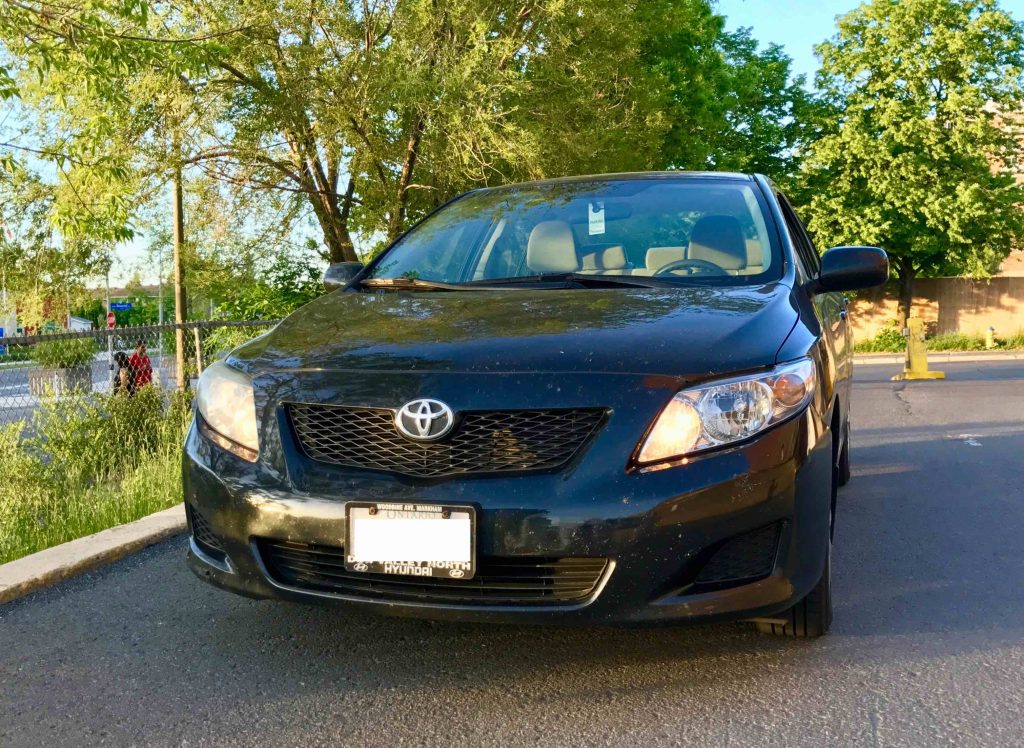With gas prices rising, articles have started to appear about how to save on your commute costs. Some suggest moving closer to your work. There is undeniable logic about that one, but a house move is a drastic change with large switching costs, and there is no guarantee that your work won’t move a month after your house does. Other articles suggest switching to a more fuel-efficient vehicle. Sage advice! The idea can work when it’s actually time to change vehicles or when you’re in a position that you no longer need to haul 3 kids and goalie equipment to practice every week.
Does it make sense to shop for gas prices?
Most baffling is the business of shopping for the lowest gas prices. The reports on AM radio are a curiosity, dutifully reporting whether gas prices will rise by 2 cents or fall by 1 cent overnight. But what do I do with this information? Let’s say I have a 60-litre tank that is half full, and that I learn that gas prices will rise by 1 cent overnight. Should I spend 40 cents in gas to drive to the station and back to fill up a half a tank, thus saving 30 cents over tomorrow’s prices? What if the price falls by 2 cents the next day and I missed a further 30 cent savings?
If the conventional ideas don’t help much, how do you actually save on commute costs? One obvious one is public transit, where that falls along your route. Let’s look at some other ideas that can be implemented right away that can save no matter where you live and work.
Look more closely at parking costs
A great place to start is with parking. If you don’t have paid parking, take some time to shop around for parking in your area. Over lunch, look at prices of nearby lots. Check online for parking rates in the area of your work. The Best Parking site is a great place to start. See if nearby apartments or condos have space for rent. Adding a 200-metre walk at the end of your commute can add some needed exercise to your day – bonus. If you are paying weekly, see if you can switch to monthly. Saving even $5 on parking daily is worth over $100 monthly!
The best commute is no commute, or at least fewer of them
Have a chat with your manager – can you work from home one day a week? Set commitments of what needs to be done and show how you can achieve them as well or better from home. With an average Canadian commute of 26 minutes, you can free up an extra hour of work time. This approach saves 20% of commute costs including parking, gas, car maintenance and road tolls. At even $5 per trip for gas and $20 for parking, this change is easily worth another $100 monthly.
Save half of your commute costs while greening the planet
Can you carpool with friends or coworkers? Carpooling isn’t new, but it still works and can cut the cost of commuting by half or more. Let neighbours and coworkers know that you are interested in ride sharing. Waze’s carpooling app isn’t yet in Canada but stay tuned for new high-tech ways of finding a ride. Between parking, toll roads, gas and maintenance, splitting the costs can save an easy $150 monthly and help green the planet. With 2 in the car, you can take advantage of HOV lanes and speed the commute.
Keep commuting, just without the car
If your office is less than 10 km from home, what about biking to work? Even for a day or two a week? See if your building or an adjacent one has showers. Or at least a washroom where you can do a quick wash up. Bring a pack with a change of clothes and a compact camping towel from MEC. A bit of logistics, but great exercise, reduced commute costs and maybe a chance to drop your gym membership. Check online for bike lane locations. Two Wheel Gear has a site with lots of resources and products. At 2 days a week, this can save $10 weekly in gas and $40 in parking. Total monthly savings can run $200 just on those 2 factors. Bonus, your work day starts with a fresh head brimming with oxygenated blood.
Save on your commute and add $50,000 of wealth
Somewhere in these ideas is a new approach to your commute and a chance to save at least $100 monthly. Use the savings to pay down debt or invest it to add over $50,000 to your net worth over the next 20 years when invested at 7%.
Spend more time reading, staying fit, enjoying family time and taking in art and music. Less time chasing gas prices.
What did I miss? Do you have more ideas on reducing commute costs? Let me know in the comments.
For more ideas on real ways to save on your expenses to build wealth or reduce debt, check out Cashflow Cookbook.






